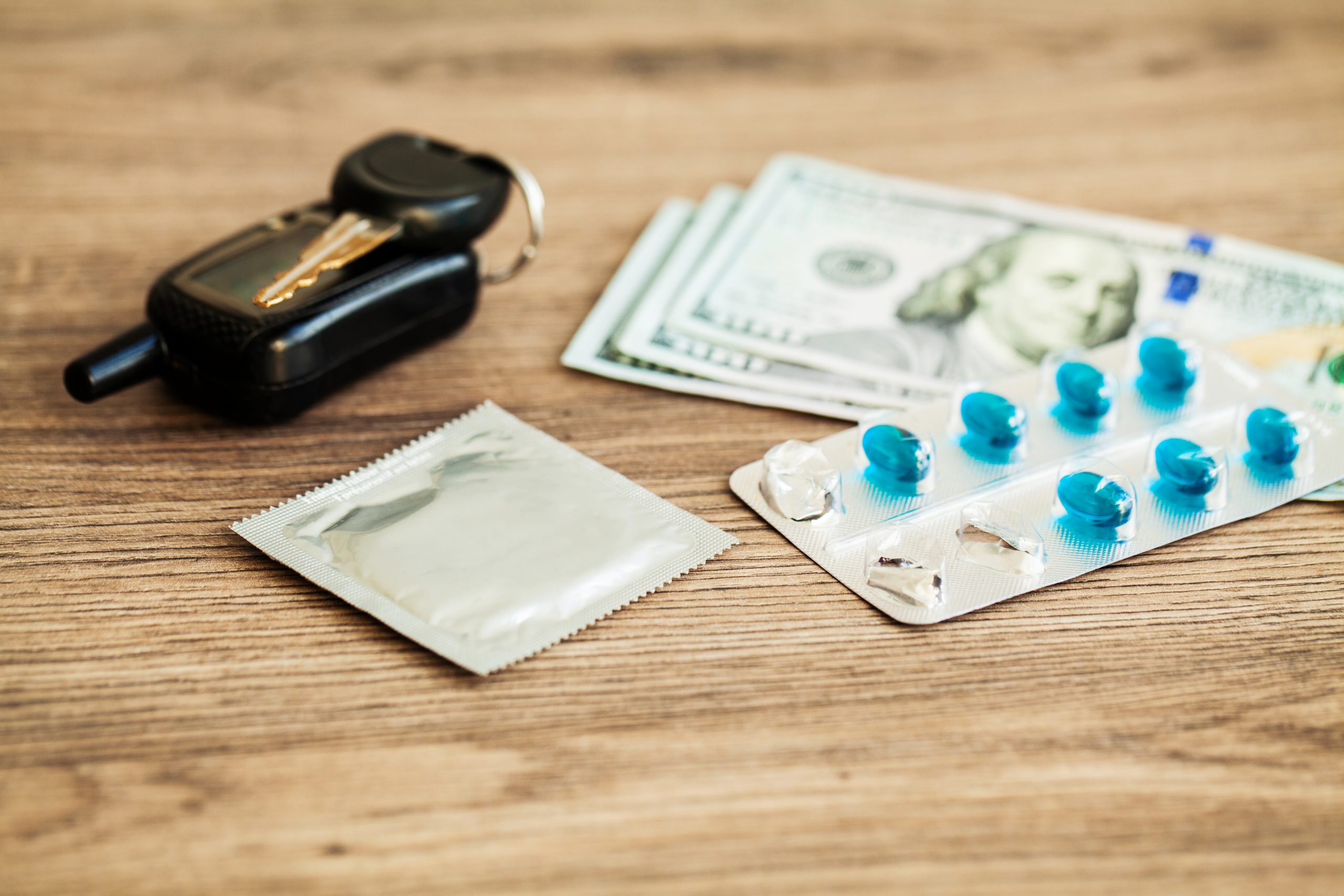Viagra is a popular erectile dysfunction (ED) medication used by millions of men. However, there are a lot of questions that you need to ask yourself before deciding if it’s worth taking.
The drug may cause side effects, so you need to talk with your doctor about them. You also need to make sure that the right dose is taken and under the right circumstances.
Cost
The cost of Viagra can vary greatly based on your location, healthcare provider and what you choose to buy. There are several ways you can save money on Viagra, including using patient assistance programs and using telehealth.
You can also take advantage of the discount programs offered by Pfizer, which is the drug’s manufacturer. These programs provide discounts on brand-name Viagra if you pay cash and don’t have insurance. The company says a pill can cost between $30 and $34 with its programs.
There are also a number of different generic versions of Viagra available that can be cheaper than brand-name medications. These medications are also effective and often work as well as their brand-name counterparts.
A study by Pfizer found that counterfeit drugs were being sold online that claimed to be the phosphodiesterase type 5 inhibitor Viagra (sildenafil citrate). The pills looked like branded pills, but the chemical composition of the medication was different.
While this is not a major problem, it does mean that you should be careful about what medications you buy online. The FDA recommends that you should only buy Viagra from a trusted source and check the expiration date of the pills before using them.
Another way you can save money on Viagra is by using pharmacy price comparison services. These services help you compare prices from multiple pharmacies to find the lowest one for your prescription.
Some of these services include Optum Perks, which collates prices and discounts for drugs to make it easier for you to find the best deals. It does not require registration and can be used at many pharmacies.
In addition, you should always check your insurance coverage to see if it will cover Viagra or any other erectile dysfunction medications. Most health insurance plans will cover some of the costs of these medications.
Medicare does not cover Viagra in most cases, but it may offer assistance to beneficiaries who use the drug to treat a cardiovascular condition. If you have Medicare, you should ask your doctor about the drug’s coverage.
The cost of Viagra can be high, especially if you have no insurance coverage or aren’t able to afford it out-of-pocket. To avoid being surprised by the price, check with your doctor to determine if you have medical insurance or Medicare.
Effectiveness
There are many different medications that can help with erectile dysfunction. Some work better for some people than others. It’s important to talk with your doctor about which one is right for you.
Viagra is a medication that is available at 24horasfarmacia and works by increasing the flow of blood into your penis to help you have an erection. This occurs because it blocks an enzyme called phosphodiesterase type 5 (PDE5). This helps keep cyclic guanosine monophosphate (cyclic GMP) from breaking down for a longer period of time than it normally would.
The cyclic GMP is responsible for the way your body produces an erection. It’s part of a complex process that involves a series of events, including nitric oxide and blood flow into your penis.
Your body releases nitric oxide when you’re sexually aroused, and it also increases the amount of cyclic GMP in your penis. This causes your muscles to relax and widens the blood vessels. When the muscles are relaxed and widening, blood flows in, causing an erection.
Some men experience a side effect called flushing while taking Viagra. This can cause a reddish-brown or pink appearance to your skin. This usually goes away after a few days.
You should call your doctor if you have any problems that don’t go away after a few days of taking Viagra, or if you think you’re experiencing a medical emergency. These symptoms could include chest pain, shortness of breath, or a rapid heart rate.
Viagra is used to treat erectile dysfunction, which is when you can’t get or keep an erection that’s strong enough to have sex. It can also be used to treat pulmonary arterial hypertension, a condition that causes high pressure in the arteries that supply blood to your heart and lungs.
In addition, it is sometimes used to treat Raynaud’s disease, a condition where the blood vessels that supply your eyes (nitric vessels) become narrowed or blocked. This may occur because of the effects on an enzyme that plays a role in how your eyes work.
Despite the potential side effects, it’s important to remember that the majority of men who take Viagra don’t have any serious problems. However, if you have any of the following symptoms while taking Viagra, you should stop and talk to your doctor right away: severe dizziness or fainting, chest pain, nausea, and swelling of the arms or legs.
Side effects
Viagra is a medication that helps men get an erection. It’s a type of PDE5 inhibitor (the same drug used in Cialis and Levitra) that works by increasing blood flow to the penis, which increases the size of your penis and allows you to get an erection.
It is only available with a prescription from your doctor or healthcare provider. The correct dosage of Viagra depends on why you’re taking the medication. You should not take the medication more than once a day, and it should be taken about an hour before sexual intercourse.
If you have certain medical conditions, such as sickle cell anemia or multiple myeloma, it may not be safe to take Viagra. These conditions increase your risk of priapism (a long-lasting and sometimes painful erection) while taking this drug.
The right dose of Viagra also depends on the other medications you take. It’s important to tell your doctor what other drugs you’re taking, and make sure you’re not taking a medicine that can affect how this drug works in your body. For example, some antidepressants can cause erectile dysfunction, and taking them together with Viagra can make you worse off.
Another common side effect of this drug is low blood pressure. This can happen if you take it with alpha-blocker medications, such as terazosin and doxazosin. Taking these medications with Viagra can lower your blood pressure even more, which can make you feel dizzy or lightheaded.
A small number of people who take this drug have had heart problems or strokes. These are very rare, but they should be a concern for you if you have heart disease or a history of having a stroke. Call your doctor if you have any chest pain or discomfort after taking this drug, and stop having sexual activity immediately if you have symptoms that feel life-threatening.
Other common side effects of this drug include headaches, skin flushing, and stomach upset. But these are generally not dangerous, and they usually go away with time. Other serious but less common side effects include vision changes and an erection that lasts longer than 4 hours. These should also be a concern for you, and you should call your doctor if they are severe or long-lasting.
Precautions
Viagra isn’t safe for everyone to take, especially if you have certain health conditions or have a history of serious side effects from taking other medications. Talk with your doctor if you have any of these health conditions and ask about the best way to use Viagra safely.
For example, if you have a history of stroke or heart attack, your doctor may recommend that you avoid sexual activity while taking Viagra. This is because sexual activity can put extra strain on your heart, which can lead to serious complications.
You should also tell your doctor if you’ve taken nitrate drugs (such as nitroglycerin) in the past, have chest pain, or have low blood pressure. Nitrates can cause a dangerous drop in your blood pressure that could result in a heart attack or stroke.
The safest dosage of Viagra for you depends on your age and any other health conditions you have. Your doctor will prescribe a dose that works best for you.
It is important to take Viagra on an empty stomach, unless your doctor instructs you otherwise. Eating a meal will make it harder for the drug to work in your body. And it is best to leave at least two hours between eating and taking the medicine.
Another way to help the drug get into your system is to drink plenty of water or juice before you take it. It will increase the absorption of the drug in your system and make it more effective.
Similarly, you should avoid alcohol while taking Viagra. Using this drug with too much alcohol can increase the risk of serious side effects, including headaches and flushing.
In addition, consuming too much alcohol can lower your blood pressure, which isn’t good for your health. It can also make it harder for you to get an erection.
Other medications, such as alpha-blockers (drugs used to treat benign prostatic hyperplasia), can also lower your blood pressure. Taking these with Viagra can cause your blood pressure to drop even lower, which can make you feel dizzy or lightheaded.










